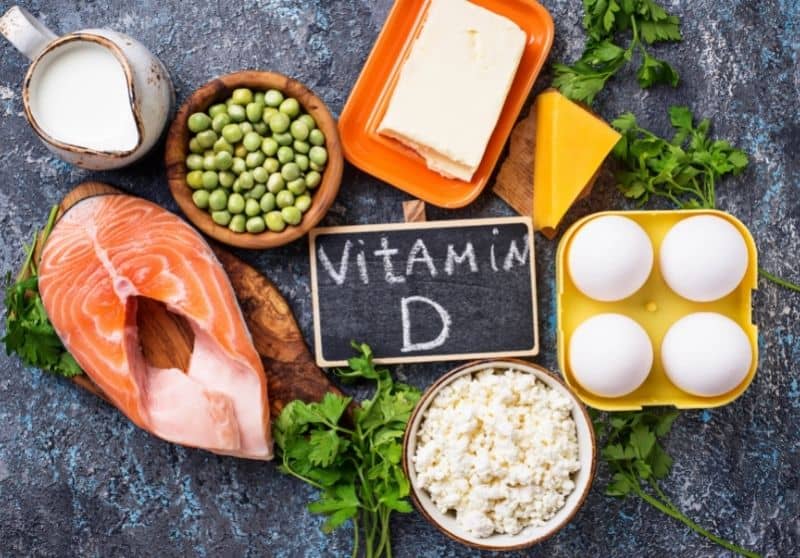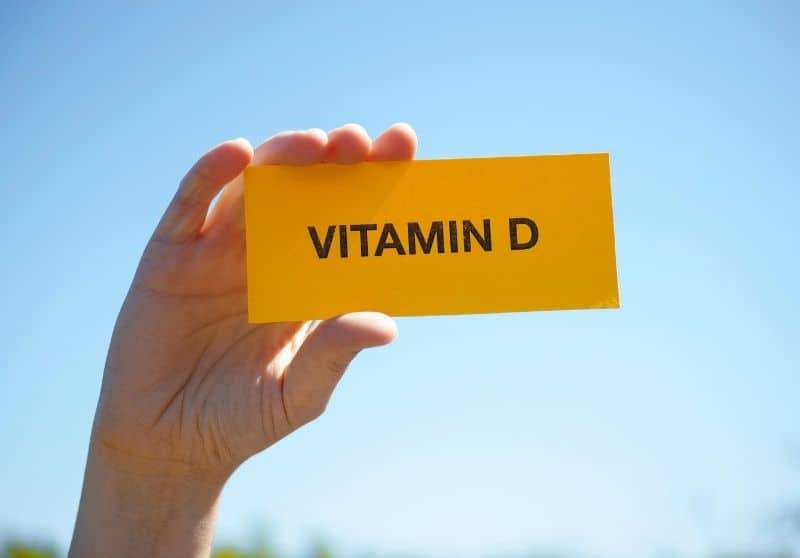Vitamin D is most often associated with the sun and is vital for our wellbeing. But is vitamin D good for eyelashes? Read on to find out.

What Is Vitamin D?
There are a whole host of vitamins that are good for your body’s health and are therefore good for your skin, hair, and eyelashes. One of the most important is vitamin D.
Vitamin D is a vital nutrient. It keeps the bones, teeth, and muscles healthy by regulating the amount of calcium and phosphate in the body.
Without either calcium or phosphate, individuals can suffer from bone deformities, as well as a host of other problems.
Vitamin D is created in the body from direct sunlight.
Most people should receive all of the vitamin D that they need from sunlight, particularly between the months of late March to September.
In the winter months, when bodies are less exposed to sunlight, there may be a heightened risk of vitamin D deficiency.
Benefits of Vitamin D

As with most other vitamins, vitamin D has an essential role in the body’s overall health and wellbeing.
Aside from being good for hair and eyelashes, vitamin D has the following benefits:
- Stimulates cell growth
- Prevents bone softening or low bone density
- Reduces risk of heart disease
- May protect against alopecia
- Regulates calcium and phosphate in the body
- Ensures normal immune system functioning
3 Reasons Vitamin D Is Good For Eyelashes
There are three main ways that vitamin D is good for eyelashes, a link that has been demonstrated by a number of reputed sources.
1. Creates new hair follicles
Vitamin D is vital in the process of creating new hair follicles.
If you do not have enough vitamin D in your system, your hair follicles are less likely to enter their growth phase, meaning that they won’t produce new hair.
As such, your eyelashes won’t grow in, or may only be patchy, thin, and easily breakable.
2. Guards against alopecia
There is research that indicates that a vitamin D deficiency is linked to alopecia.
Individuals who have alopecia will tend to lose the hair on their body, which can include their eyelashes.
By guarding against alopecia, vitamin D protects your eyelashes from this kind of hair loss.
3. May reduce shedding
Vitamin D is metabolized in the skin by cells known as keratinocytes.
These cells produce keratin, a vital building block, and protein that makes up the hair, nails, and skin.
A lack of vitamin D means that these cells can’t regulate hair shedding from either the eyelashes or the scalp.
Can Vitamin D Help Grow Eyelashes?

If you’re looking for a way to grow your eyelashes naturally, ensuring you have enough vitamin D can help. Vitamin D minimizes eyelash shedding and supports hair follicles, which in turn supports the healthy growth of eyelashes.
As discussed above, vitamin D deficiency has also been linked to alopecia, a condition that causes hair loss from the scalp and eyelashes.
It’s therefore important to ensure that you have enough vitamin D if you’re looking to grow your eyelashes.
How To Use Vitamin D For Eyelashes
If you’re looking for ways to help your natural lashes look just that bit more lustrous, thick, and long, then you should aim to nurture them.
This can be done both from the outside-in, via conditioning serums, but also from the inside-out, via your diet.
If you have a healthy, balanced diet, then you’re more likely to be consuming all of the vitamins and minerals that you need for your body to maintain its health.
Here are the different ways you can get some extra vitamin D:
Through Your Diet
One of the most comprehensive ways to ensure that you’re getting enough vitamin D and aren’t deficient is by incorporating it into your diet.
Look to eat oily fish like salmon, tuna, and sardines regularly. Red meat and liver are also good, as are egg yolks, Greek yogurt, and mushrooms.
Otherwise, you’ll find cereals and dairy products that have been fortified with vitamin D.
The Sun
Yes, you heard it here – sunbathing is important in order to ensure that you have enough vitamin D in your system.
It’s easier to get the sunshine that you need in the summer months, and you may notice a vitamin D deficiency in the winter months.
Vitamin D is stored in your body for anywhere from weeks to months, so depending on the amount of time that you’re regularly exposed to sunshine, you may be naturally producing enough.
Supplements
There are a number of different vitamin D supplements available.
They come in pill form, but can also come in a spray that is administered orally if you dislike pills.
This method also delivers vitamin D into the bloodstream faster than pill form, making it a faster method of getting your vitamin D.
Risks And Warnings Of Using Vitamin D
There are arguments about the amount of vitamin D required by individuals.
Inevitably, the amount of vitamin D that you need to consume will differ according to your age.
However, it’s highly common to be deficient in vitamin D, particularly for older adults.
Exposure to sunlight is one of the most sure-fire ways to up your vitamin D intake. This is because vitamin D is produced from the cholesterol in the skin when that skin is exposed to the sun’s UVB rays.
However, you need to remember that sun exposure can come with a host of disadvantages, and you should always take care to wear sunscreen if you plan to spend extended periods of time in the sun.
